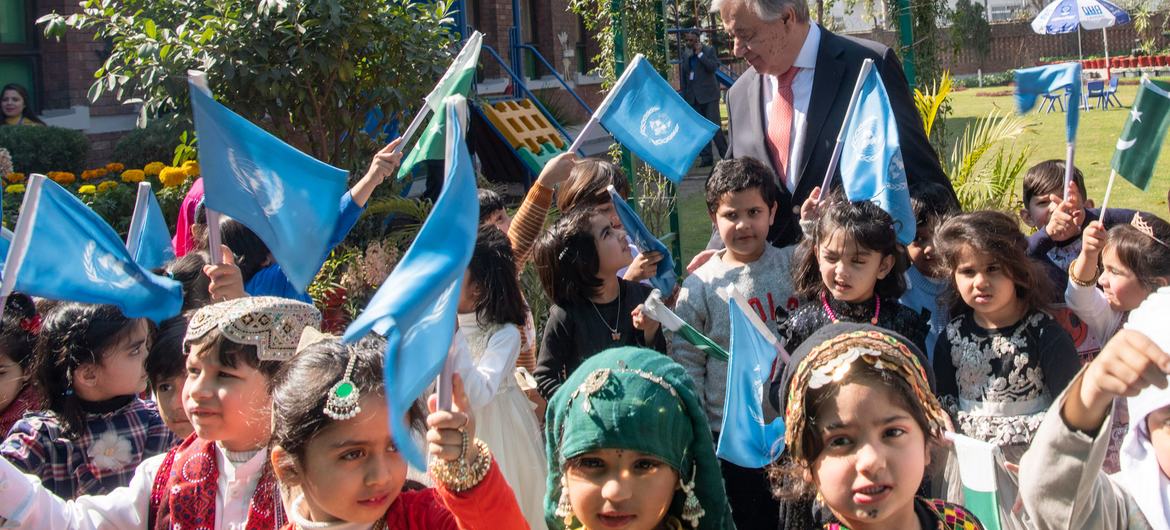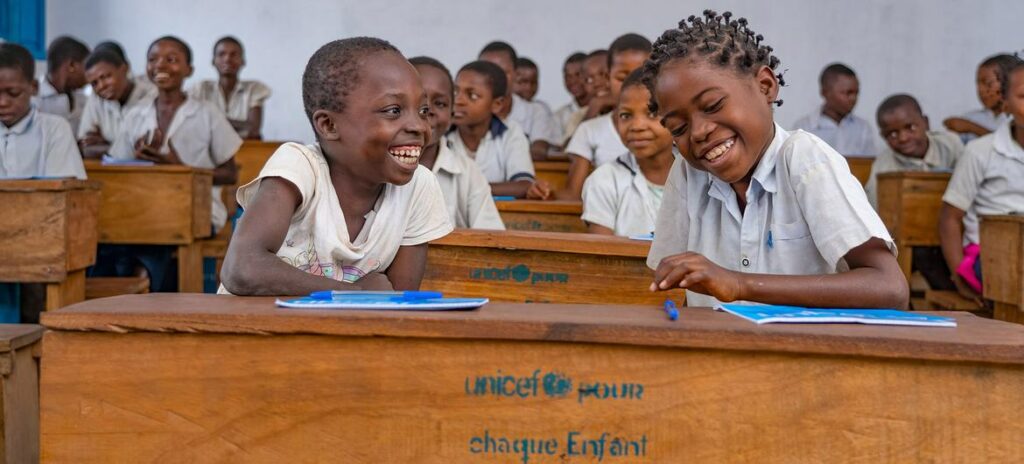
UN values and principles needed ‘now more than ever’, Guterres says in UN Day message
United Nations, 21 October 2022
Secretary-General António Guterres has called for renewed hope and conviction in global solidarity in his message for United Nations Day, being celebrated on Monday.
The UN was born from the ashes of the Second World War and the day marks the anniversary of the entry into force in 1945 of the UN Charter, its founding document.
Mr. Guterres described the UN as “the product of hope” because it embodies the hope and resolve to move beyond global conflict, to a new era of global cooperation.
‘Tested like never before’
“Today, our organization is being tested like never before. But the United Nations was made for moments like this,” he said.
“Now, more than ever, we need to bring to life the values and principles of the UN Charter in every corner of the world.”
The Secretary-General emphasized why the UN is so essential today, as it is “giving peace a chance and ending conflicts that jeopardize lives, futures and global progress.”
Making the difference
The UN is also working to end extreme poverty, reduce inequalities, and rescue the Sustainable Development Goals (SDGs), agreed by all 193 UN Member States in 2015.
Mr. Guterres pointed to the UN’s role in safeguarding the planet, including by breaking global addiction to fossil fuels and kickstarting the renewable energy revolution.
He also highlighted how the UN is “balancing the scales of opportunity and freedom” for women and girls, while also ensuring human rights for all.
“As we mark UN Day, let us renew our hope and conviction in what humanity can achieve when we work as one, in global solidarity,” his message concluded.
Restore trust among nations
Multiplying and interconnected global crises, including increasingly serious natural disasters, make it clear “that we have no time to lose” and must achieve sustainable development, said the President of the UN General Assembly, Csaba Kőrösi.
His message for UN Day focused on how the global body has two urgent parallel tasks: managing crises and promoting transformation.
“The UN can do this in its own house, but the most important thing is what the Member States themselves do at home on the basis of common knowledge,” said Mr. Kőrösi.
“The Organization works on practical solutions, based on the results of science and the principle of solidarity. However, in order to achieve a breakthrough, mutual trust must also be restored between the Member States,” he added.
UN Day also marks a double celebration in Rwanda. On Monday, the UN Office there and the Government are celebrating the 60th anniversary of the country’s membership in the global body.
“The UN extends its sincere appreciation to the Government and the people of Rwanda for the support and continued commitment to work closely for the benefit of the people of this country – leaving no one behind,” said UN Resident Coordinator Ozonnia Matthew Ojielo.
“We reaffirm the UN’s collective commitment and pledge cooperation and support in all forms to address shared objectives grounded on the UN Charter.”

© UNICEF/Josue Mulala Fourth-grade students attend class at their new school, which was rebuilt after it was destroyed by fighting in the Kasai-Oriental province of DR Congo.
Education cannot wait
The head of a UN educational fund is urging donors to step up support so that the 222 million children and adolescents worldwide caught in emergencies and protracted crises can continue to learn.
Education is “the very foundation” of the global vision for sustainable development, respect for human rights, and maintenance of peace and security, said Yasmine Sherif, Director of Education Cannot Wait.
“Without education – especially for those suffering in wars, climate disasters and as forcibly displaced – how can we ever achieve the vision of the United Nations? It is logically and humanely impossible,” she said in her message for UN Day.
High price to pay
Ms. Sherif noted that 77 years after the proclamation of the UN Charter, the world is facing unprecedented insecurity, and new and ongoing armed conflicts, as well as record displacement.
Boys and girls surviving in these brutal contexts, who cannot access continued and quality education, are the ones paying the price.
“In the senseless war in Ukraine, we see first-hand deliberate attacks on schools and other civilian targets,” she said. “All attacks on schools and schoolchildren contravene the UN Charter, international humanitarian law and the Safe Schools Declaration.”
Ms. Sherif said that by delivering education to every child and adolescent in emergencies and protracted crises, “we can close the gap between the powerful vision of the United Nations and the cruel realities on the ground.”
The original article appeared here.